Using footers in your Word documents allows you to add page numbers, or a web address and keep it visible to readers wherever they are in the document. Sometimes you need more flexibility though, it's not enough to just have one footer or header throughout the whole file.
Keep reading If you're curious to learn how to set up your Word document with a different footer on each page. Word has a process to allow this, but there are other options you might find easier.
Part 1. How To Have a Different Footer on Each Page in Word the Easy Way (Also Works for Headers)
So, you want your Word documents to have the professional look you get from having a nicely designed header or footer. That's easy enough. But what about if you want to have different headers and footers for different sections of the document? Or even a different footer on every page?
That's easy when you're using UPDF.
With UPDF you can set different footers and headers in Word documents quickly and easily. Set different headers and footers in Word for custom pages, have one footer for odd pages and another for even, or skip the footer on certain pages if you like.
Everything you can do with a footer, you can do with a header too. That makes it easy to have a different header on each page in Word. Word has a process for this, but it's far easier to do it in UPDF.
There's an easy step-by-step guide for you to follow below. Here's the UPDF free download link you'll need to get started.
Windows • macOS • iOS • Android 100% secure
First, turn your Word document into a PDF file:
- In Windows, simply open UPDF and drag the file into the "Open File" box. UPDF will automatically turn it into a PDF which you should then save.
- On Mac, open the Word document, then go to File > Save As and choose "PDF".
Now, set the footers:
- With the PDF file open in UPDF, choose "Tools" from the left-hand side of your screen.
- Select the "Header & Footer" option.
- Click "Add Header & Footer" on the right-hand side.
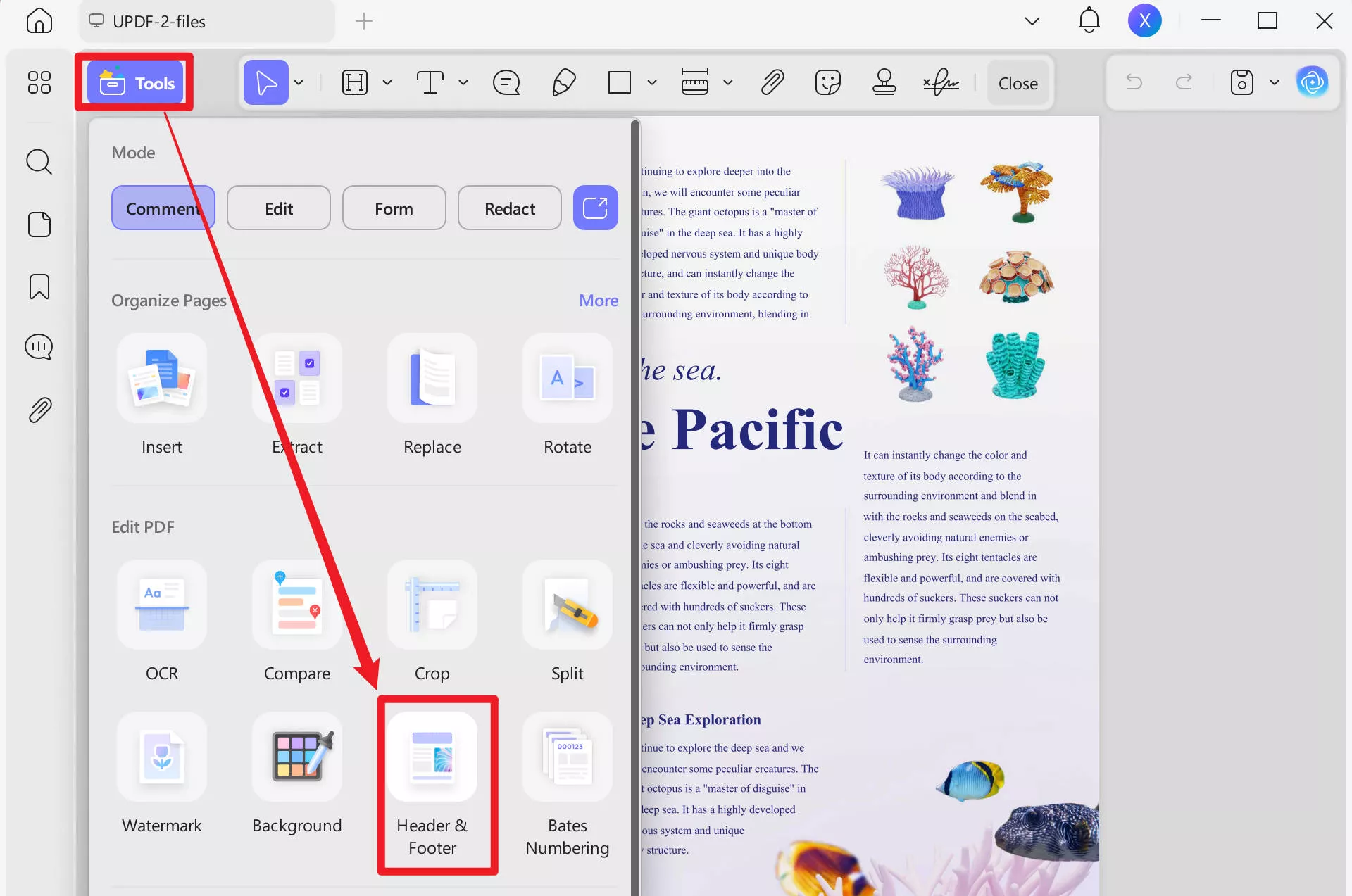
- Now, run through the layout and content options to set up the footer to your liking. Type your footer text into the "Content" box.
- Use the "Page Range" tool to choose the page range you'd like this footer to apply to. (It's at the top, right next to where it says "Add Header & Footer".)
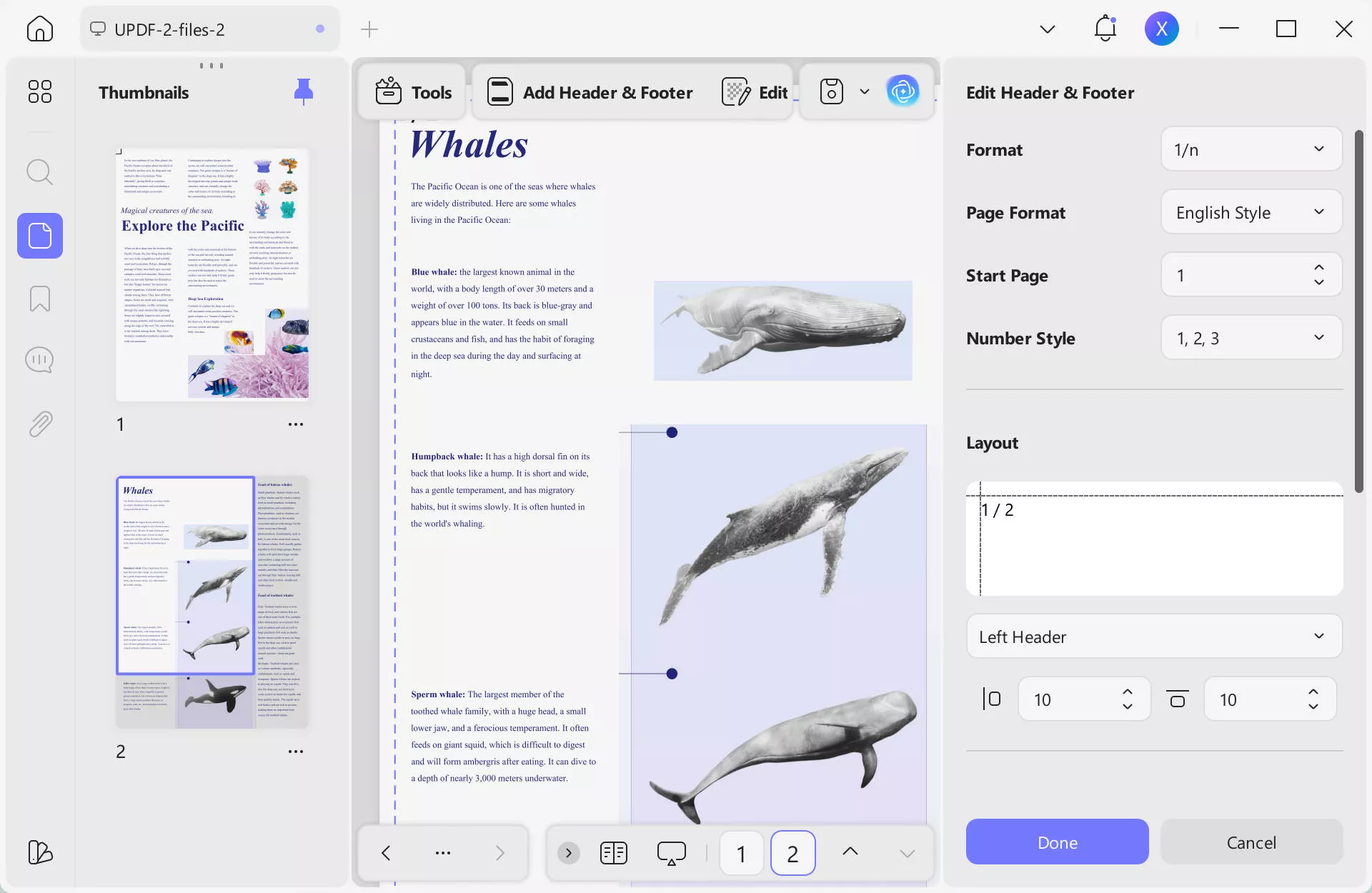
- Save your footer.
- Then, navigate to another page and repeat the process. You can make as many different footers as you like, even going as far as to have a different one on each page.
- Finally, don't forget to convert the PDF back to Word. Select the "Tools" option on the right toolbar. Next, choose the Word format to export. Enter the page range you want to save, then click the "More" button to open a new tab. Then select the output format.
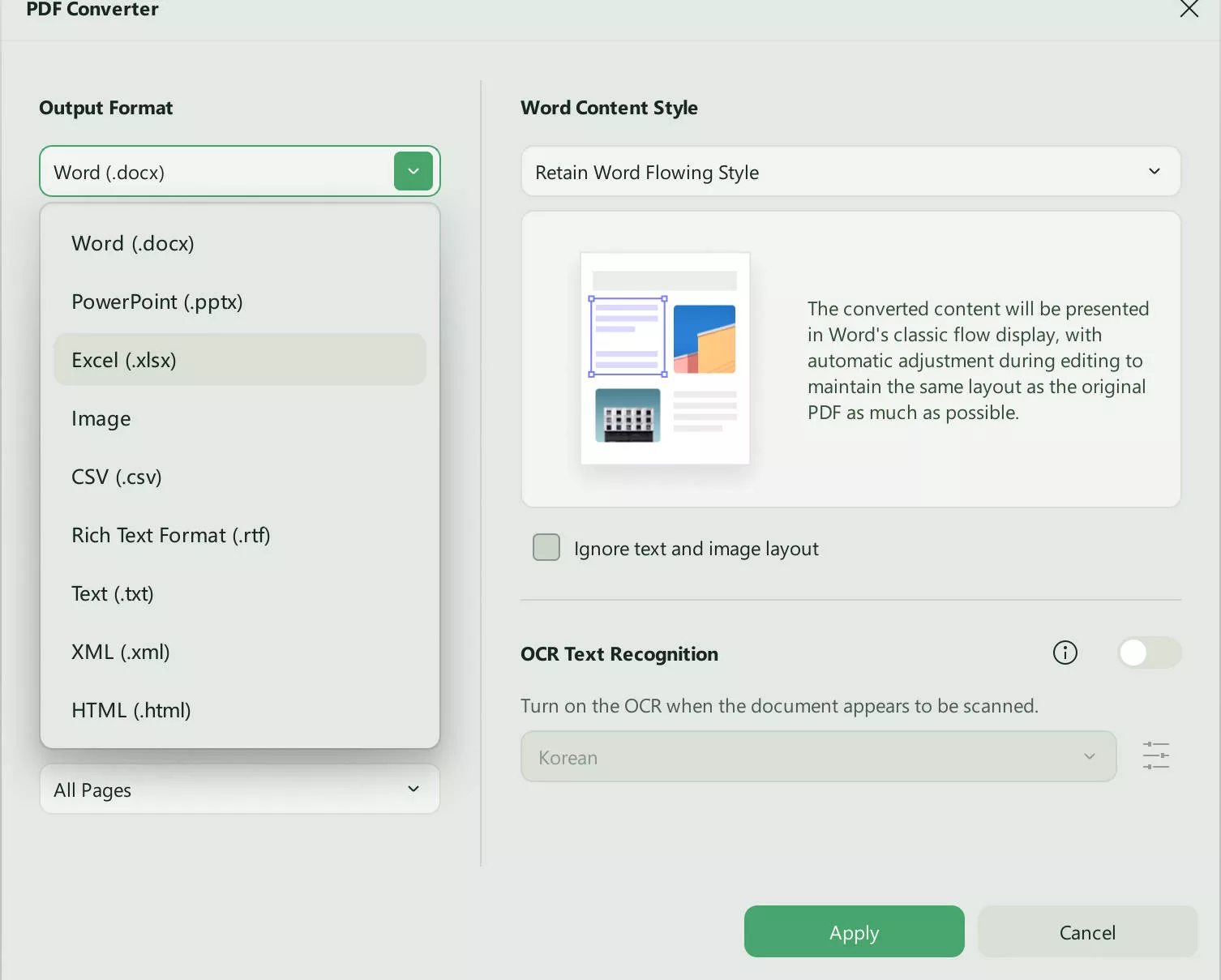
Spend your time on the creative stuff, and let UPDF deal with the mechanics. You need a tool that offers no-fuss customisation of headers and footers to make your documents look the way you want them to.
Here is the video Guide of add footer into PDF:
Part 2. How To Have Different Footers on Each Page in Word - The Official Fix
What about if you'd rather stick with the official tools, and avoid having to convert files?
The good news is that it's possible to have different footers on each page in Word and to achieve that without using an external tool.
The bad news is that it's quite a complicated process. It's time-consuming and a bit fiddly to do.
If you're set on using Word to add different headers and footers, then take a deep breath and follow along below.
1. Setting different footers for any page in Word
These steps work for when you need several different footers throughout your Word document.
- Go to "Insert" on Word's top menu and then click "Footer".
- Customise your footer as desired, then add the footer text and use the Escape key to exit, or click somewhere outside the footer box with your mouse.
- Take your cursor to the final page where that footer should be used.
- Open the "Layout" menu and choose Breaks > Section Breaks > Next Page.
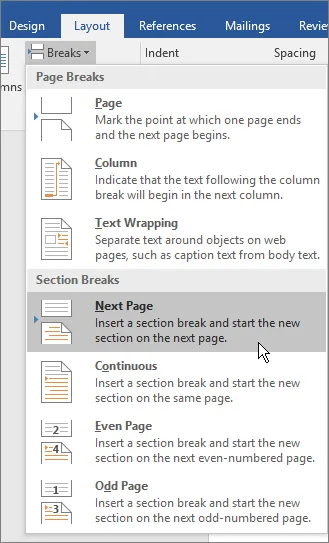
- At the bottom of that page, double-click the footer and it should now read "Footer - Section 2".
- Unselect the "Link to Previous" option by clicking it to remove the highlighting.
- Edit the footer as required and hit "Escape" to exit.
- Repeat this process to create as many different footers as you need.
2. How to set different footers for odd or even pages in Word
This is how to set up Word to use one footer for the odd pages in your document, and another for the even pages.
- Open the "Insert" menu and choose "Footer".
- Choose the footer style you'd like, or choose "Edit Footer" to set it up yourself.
- Check the box that says "Different Odd & Even Pages".
- Now you'll see a label saying "Odd Page Footer". Edit that footer and press "Escape" to exit.
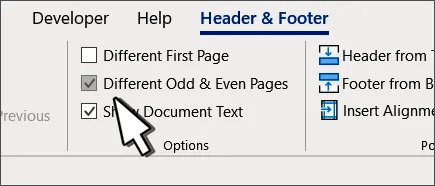
- Scroll to the next page and double-click the footer, which will be marked as "Even Page Footer".
- Edit this footer as well, and then hit "Escape" to exit.
3. How to add a different footer on the first page of a Word document
Finally, you might want a different footer on the first page than you do on all the others. An example of this is when you have a cover or title page where you don't want your footer to show, or where you'd like a footer without page numbers.
- Go to "Insert", then select "Footer". Choose the footer style that best suits your document, or select "Edit Footer" to choose all own options.
- Tick the "Different First Page" checkbox.
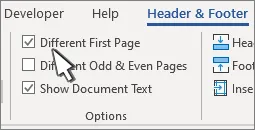
- Now, when you double-click that first-page footer, it's labelled "First Page Footer", while all the other pages are simply labelled "Footer".
- Add your required footer text for the first page footer, then tap "Escape" to exit.
- Go to the footer on another page, and double-click to edit that, again, using "Escape", or clicking outside the footer to exit.
As you can see, there are a lot of steps for these processes, particularly if you need several different footers in one document. But, it can be done just using Word. Setting different footers (or headers) on each page in Word can be time-consuming and convoluted. That's why we included the UPDF option as the first choice in this article.
Maybe after reading all the steps needed to change footers in Word, you'd rather pick the easy option and try UPDF? If so, just click the button below to download UPDF for free and give it a go - you'll be able to sort those footers out in no time.
Windows • macOS • iOS • Android 100% secure
Part 3. Bonus Tip: UPDF Can Do More Than Just Setting Different Footers & Headers
If you liked using UPDF to work on headers and footers in your Word documents, you'll be thrilled to learn that this software can do much more than that.
With UPDF you can:
- Use AI tools to help your workflow.
- Convert PDFs to and from a range of file formats.
- Use OCR to turn scans or photographs into PDFs.
- Perform batch processes on multiple files quickly.
- Edit and organise your PDF documents.
- Compress files to reduce size without compromising on quality.
- Use a range of reading tools to view PDFs and search within them.
- Annotate with highlighting, text, and 'sticky notes'.
- Add your personal signature to official documents.
- Utilise UPDF Cloud to make it easy to work across different platforms and devices.
Wrapping Up
When you need more flexibility than the default of having the same footer or header on every page, UPDF is the easiest option. It's simple to have a different footer for the first page, or to have separate footers for odd and even pages in Word. Sometimes you need more than that. If you want multiple headers or footers throughout your document, and you want to be able to create them quickly, you'll find UPDF works best.
Try UPDF now, risk-free, and see how easy it is for yourself. You may purchase UPDF Pro to access its premium features and get the best experience of working on PDFs.
Windows • macOS • iOS • Android 100% secure
 UPDF
UPDF
 UPDF for Windows
UPDF for Windows UPDF for Mac
UPDF for Mac UPDF for iPhone/iPad
UPDF for iPhone/iPad UPDF for Android
UPDF for Android UPDF AI Online
UPDF AI Online UPDF Sign
UPDF Sign Edit PDF
Edit PDF Annotate PDF
Annotate PDF Create PDF
Create PDF PDF Form
PDF Form Edit links
Edit links Convert PDF
Convert PDF OCR
OCR PDF to Word
PDF to Word PDF to Image
PDF to Image PDF to Excel
PDF to Excel Organize PDF
Organize PDF Merge PDF
Merge PDF Split PDF
Split PDF Crop PDF
Crop PDF Rotate PDF
Rotate PDF Protect PDF
Protect PDF Sign PDF
Sign PDF Redact PDF
Redact PDF Sanitize PDF
Sanitize PDF Remove Security
Remove Security Read PDF
Read PDF UPDF Cloud
UPDF Cloud Compress PDF
Compress PDF Print PDF
Print PDF Batch Process
Batch Process About UPDF AI
About UPDF AI UPDF AI Solutions
UPDF AI Solutions AI User Guide
AI User Guide FAQ about UPDF AI
FAQ about UPDF AI Summarize PDF
Summarize PDF Translate PDF
Translate PDF Chat with PDF
Chat with PDF Chat with AI
Chat with AI Chat with image
Chat with image PDF to Mind Map
PDF to Mind Map Explain PDF
Explain PDF Scholar Research
Scholar Research Paper Search
Paper Search AI Proofreader
AI Proofreader AI Writer
AI Writer AI Homework Helper
AI Homework Helper AI Quiz Generator
AI Quiz Generator AI Math Solver
AI Math Solver PDF to Word
PDF to Word PDF to Excel
PDF to Excel PDF to PowerPoint
PDF to PowerPoint User Guide
User Guide UPDF Tricks
UPDF Tricks FAQs
FAQs UPDF Reviews
UPDF Reviews Download Center
Download Center Blog
Blog Newsroom
Newsroom Tech Spec
Tech Spec Updates
Updates UPDF vs. Adobe Acrobat
UPDF vs. Adobe Acrobat UPDF vs. Foxit
UPDF vs. Foxit UPDF vs. PDF Expert
UPDF vs. PDF Expert



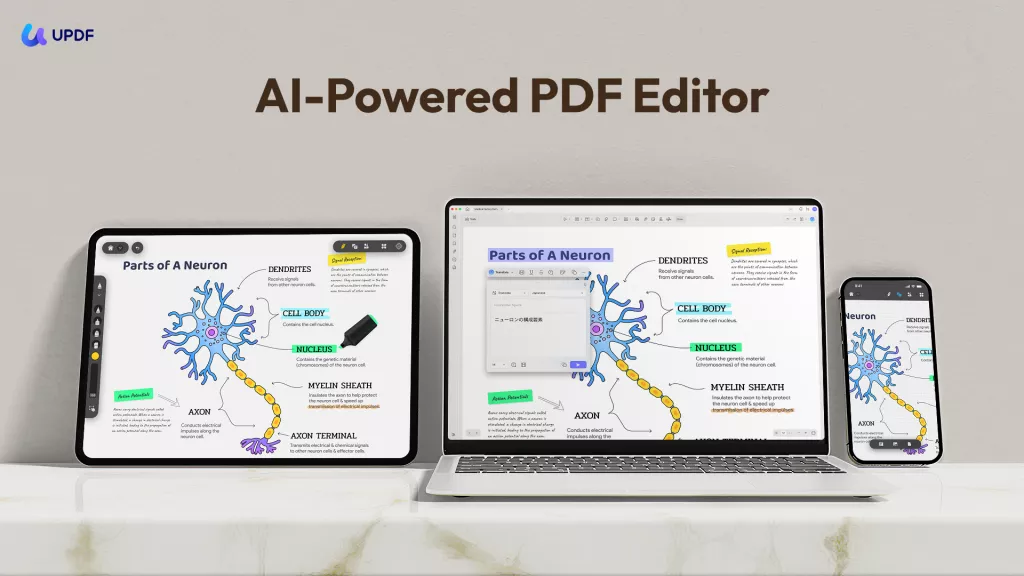

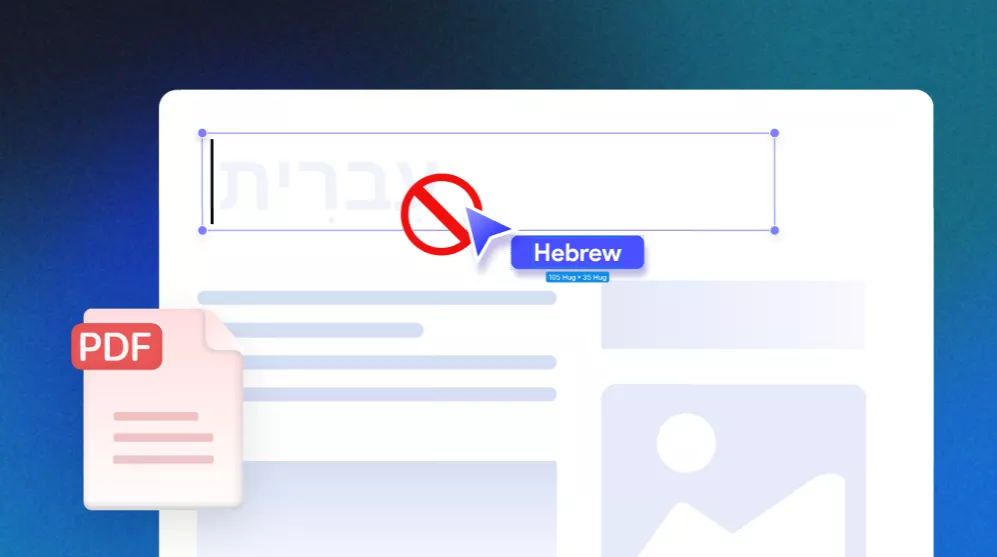
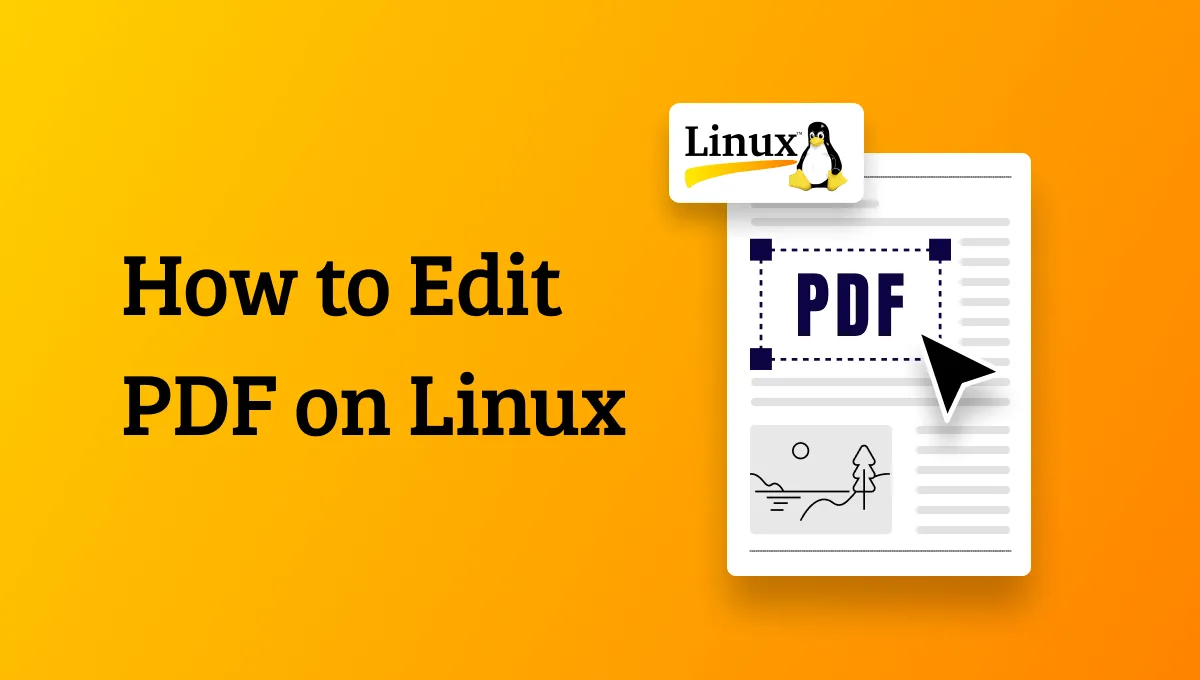
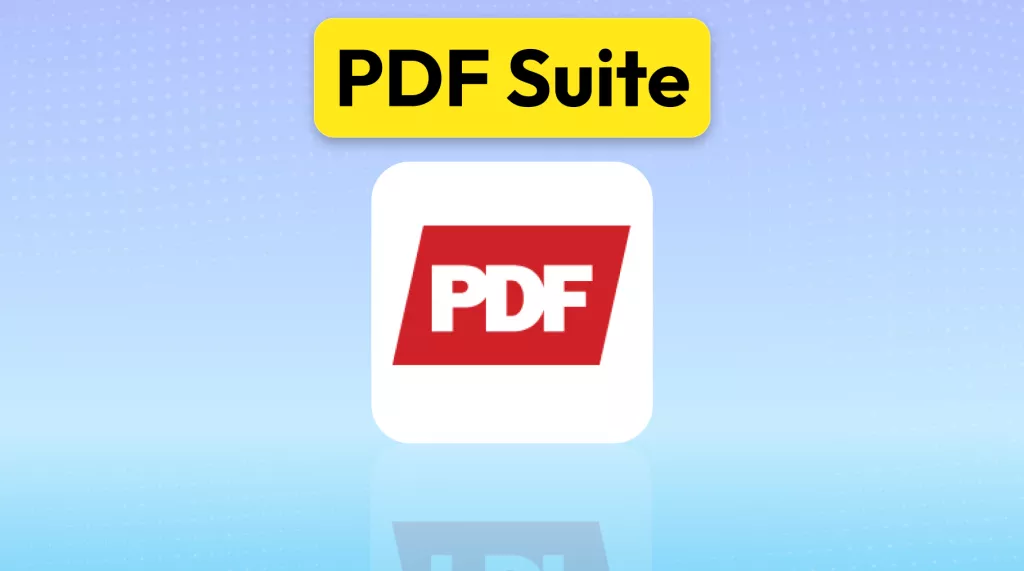

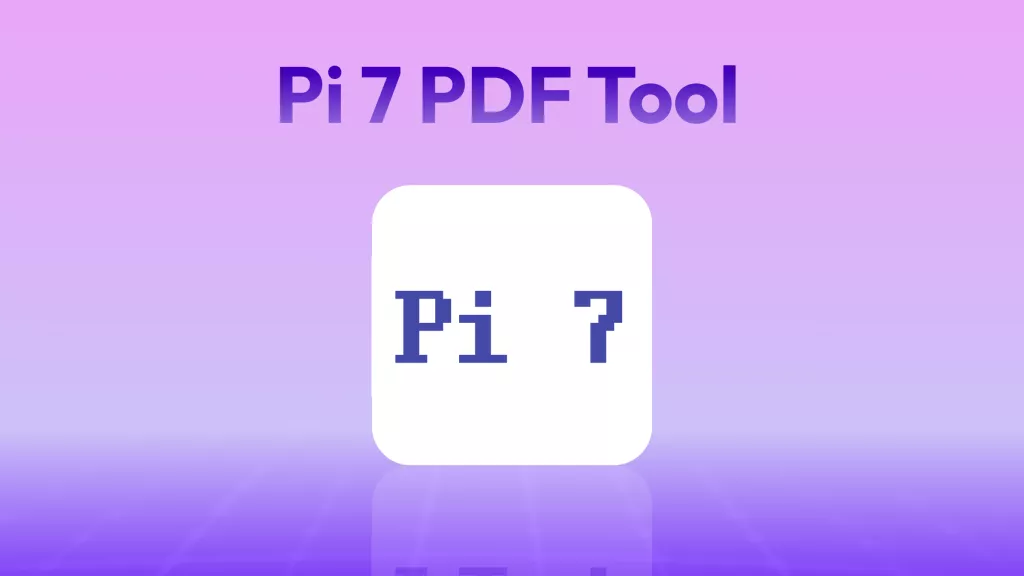
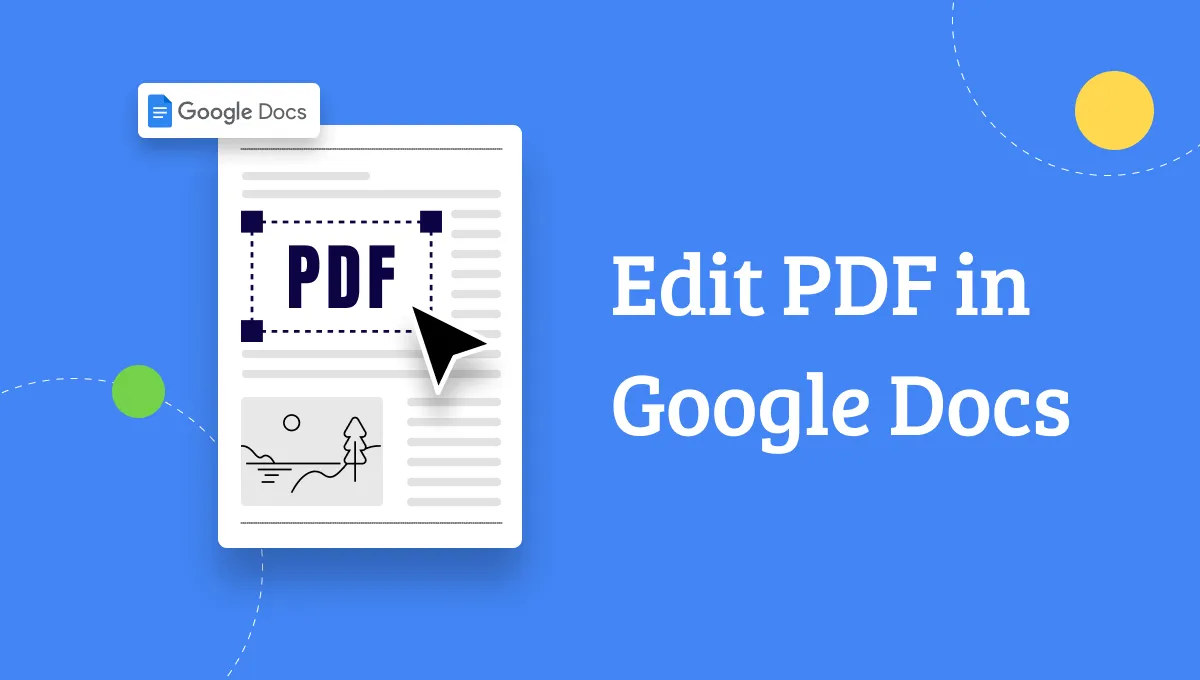
 Enrica Taylor
Enrica Taylor 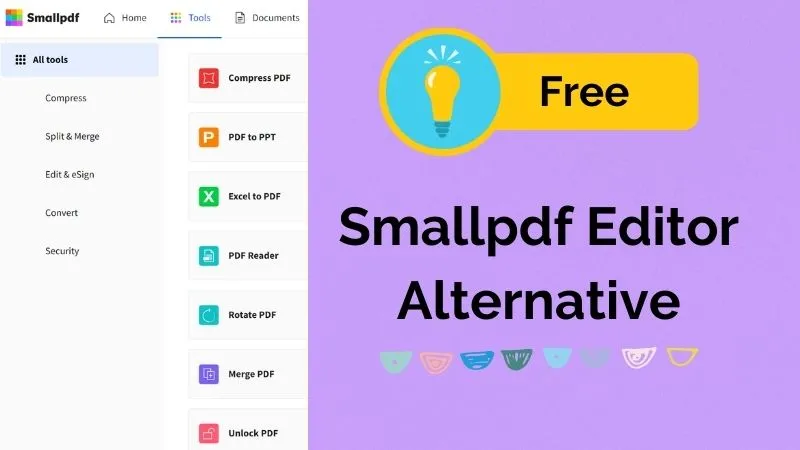
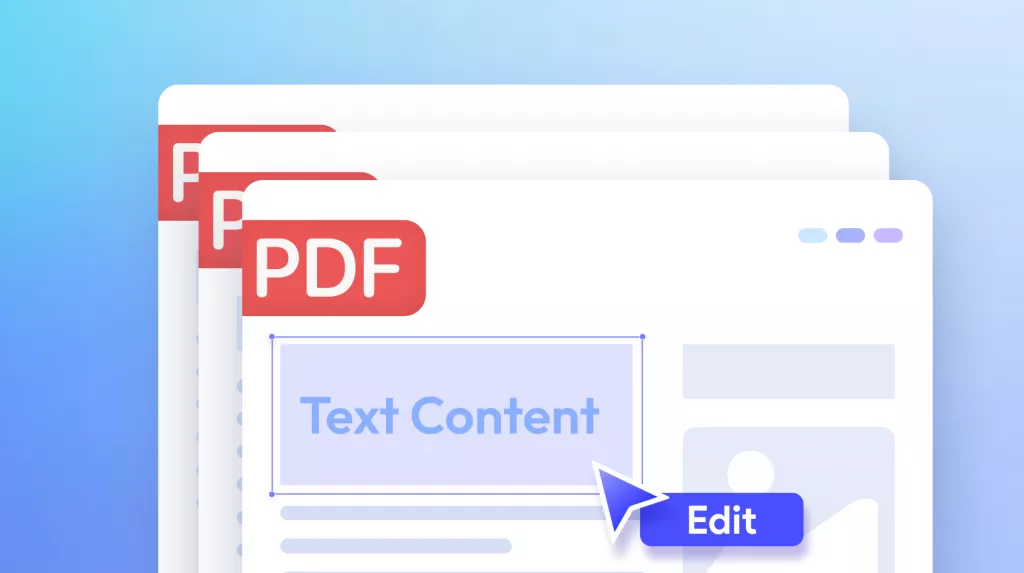
 Enola Davis
Enola Davis 